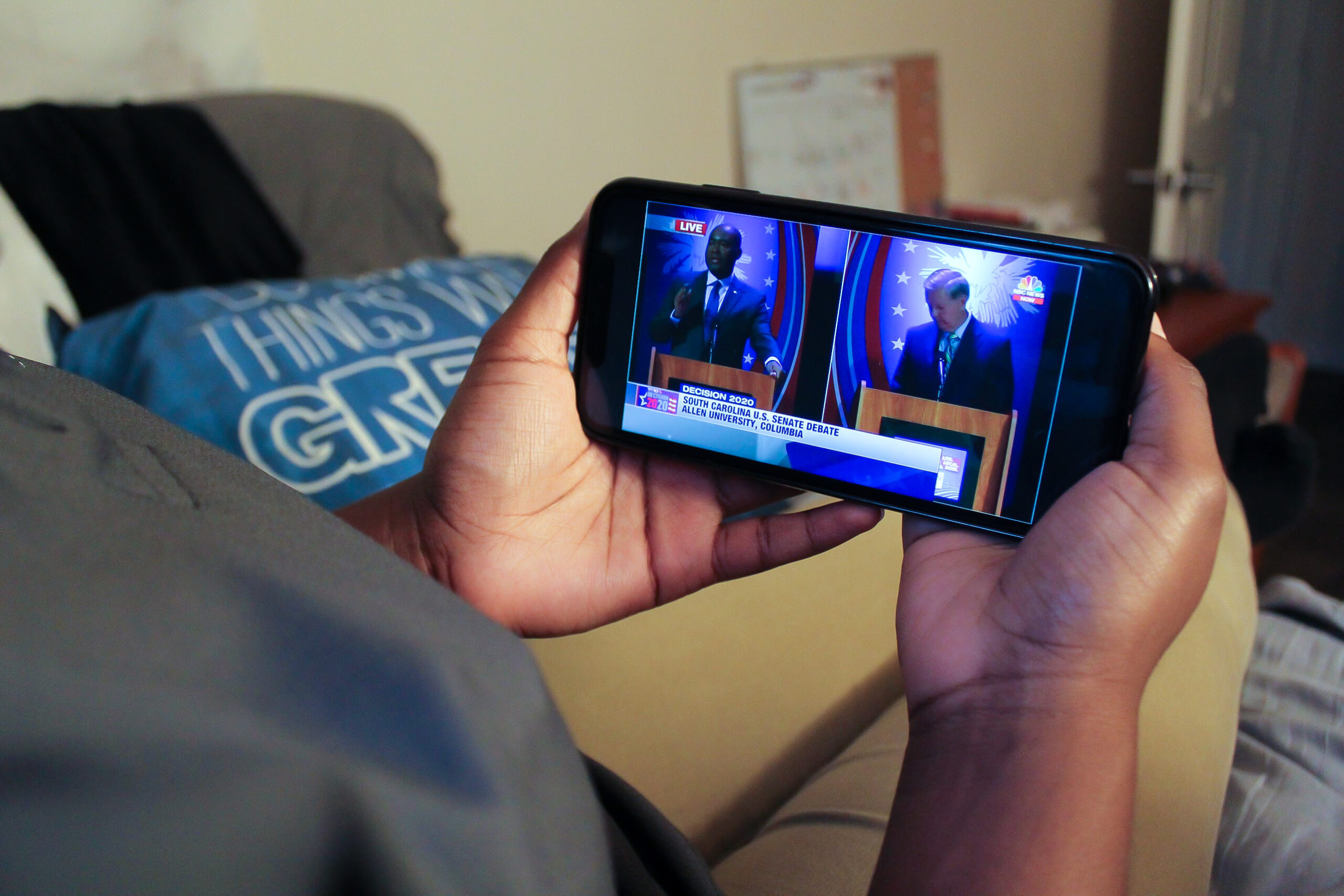As the presidential race continues to heat up across the country, voters in South Carolina are also keeping an eye on the ongoing Senate race between incumbent Sen. Lindsey Graham and his challenger, former South Carolina Democratic Party chairman Jaime Harrison. With many recent polls reflecting near tied numbers, the race is sure to be a close one.
“I see ads for [Harrison] a lot,” said Savannah Hynes, a freshman integrated marketing communications major. “I feel like I see Jaime Harrison ads more than ads for Lindsey Graham.”
As anyone in South Carolina with a TV or access to YouTube has seen, Harrison has been running a myriad of unavoidable ads since April, and there’s a reason people are seeing more ads for Harrison than Graham. So far, Harrison has set an unprecedented record in the state by outraising Graham in every quarter and spending over $60.3 million in ads. Meanwhile, Graham has currently spent or reserved only $20.6 million in ads.
“I think marketing is very important, especially now since a lot of things are virtual, and people can’t really go anywhere, so I think having a presence online is a really big deal,” said Hynes. “Especially for younger people, if they’re on the fence of who to vote for, they can look them up or learn more online about who to vote for.”
If elected, Harrison will be the first democrat senator for the state since 1998, and according to recent FiveThirtyEight poll numbers the two competitors have been nearly tied for months. Many political analysts, such as Jessica Taylor from the Cook Political Report, have labeled the race a “toss up,” while others, like FiveThirtyEight, are still expecting a victory for Graham in an historically red state.
A recent Quinnipiac University poll surveyed expected voters in South Carolina. The poll found that 49% of likely voters would like to see a Republican controlled Senate, while 44% favored a democratic one. The results also showed that, when it comes to honesty, 40 – 50% of voters don’t think Graham is honest.
“A lot of stuff I’ve seen on social media is saying that he is a liar, that he’s not telling the truth, and that he just wants people to vote for him,” said Hynes. “I feel like it’s kind of a typical thing for a lot of candidates to just lie to get what they want. So, it would make a lot of sense to me if he wasn’t honest.”
In a similar vein, it was found that 50% of voters believe that Graham does not care about average people, while 59% think that Harrison does. “I think [Graham] may care about a certain marginalized group, because he does care about ‘people,’ but he doesn’t care about the mass majority. So, I’m in between on that,” said Morgan Ivey, a freshman international business major.
As Senate Judiciary hearings, led by Graham, for President Trump’s Supreme Court nominee Amy Coney Barret begin this week, analysts like Taylor believe that Graham could pull ahead in the polls as he will be front and center as chairman of the committee. Harrison has continued his attacks on Graham, both in ads and on the debate stage, for “flip-flopping” on his stance to confirm a justice so close to a presidential election. In 2018 Graham was adamant about not voting to confirm a Trump Supreme Court nomination until after the election, saying, “If an opening comes in the last year of President Trump’s term, and the primary process has started, we’ll wait [un]til the next election.”
Harrison’s attacks on Graham are fair ones, and are representative of a larger issue exemplified in both Graham and almost any other modern politician. It’s clear to anyone who’s paid attention to politics now, or anytime in the last hundred years, that a politician’s words are near meaningless when party affiliation comes into play. Lindsey Graham flip-flopping on this issue is just one of the most recent examples in a long line of inconsistencies in the words of politicians. This kind of move isn’t surprising anymore and is honestly just one sad brush stroke in the painting of our continually failing political system.
“I will be voting, hopefully everyone will. I feel like everyone has their bias for a certain party, and they automatically know who they’re voting for. I think everything depends on if Harrison can win over the people who are still in the middle,” said Hynes. According to the Quinnipiac University poll, 95% of likely South Carolina voters say that they have already made up their mind about their pick for Senate.
The race has been a close one for sure, and definitely will be interesting to watch in the coming weeks. But, as more young people who are tired of the lack of change or care from politicians continue to become eligible to vote, it becomes clearer that change is imminent.
In South Carolina the deadline to request an absentee ballot is Oct. 24, and in-person voting opens on Nov. 3. If you are able and registered to vote, please do so.
Photo by Jamia Johnson




